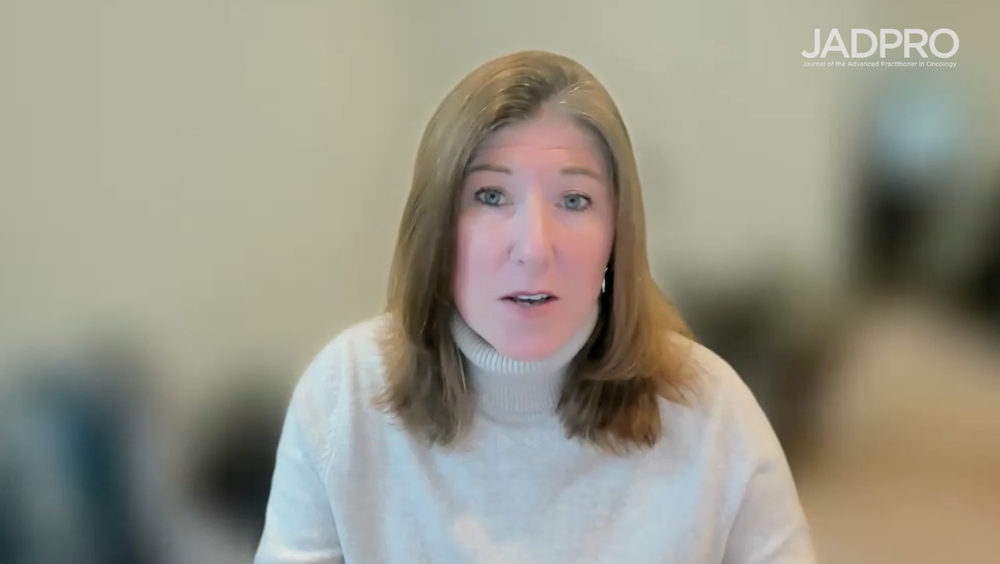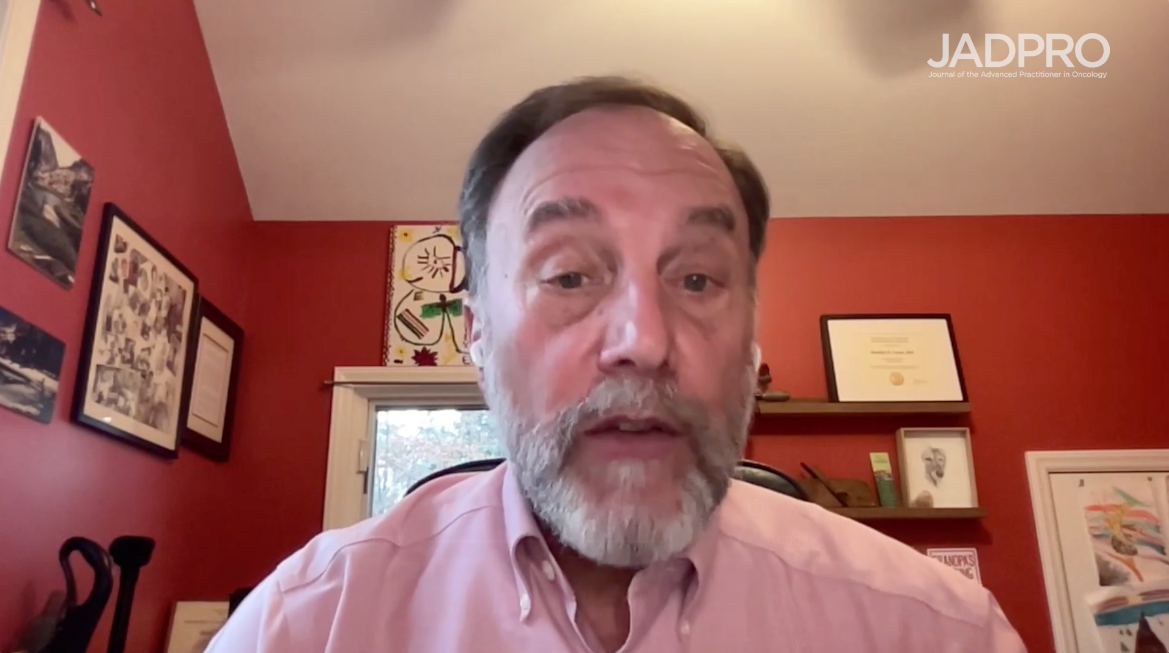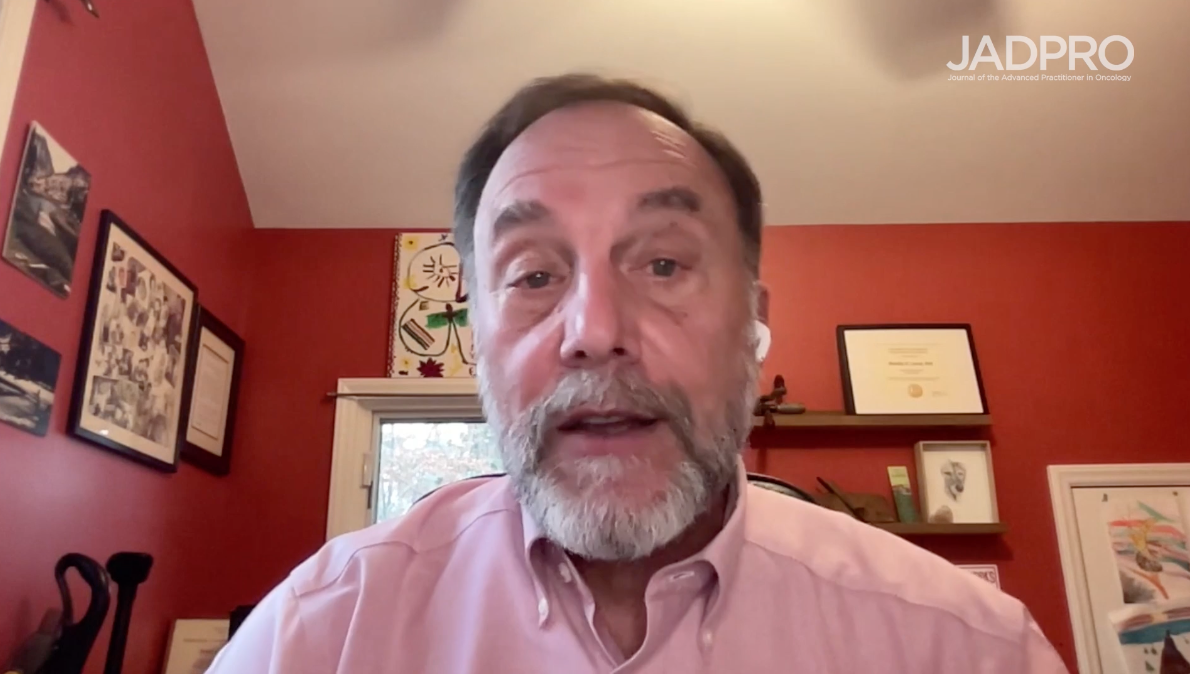Transcript
I'd like to share with you a couple of abstracts from the 2024 ASH meeting with regard to patients with follicular lymphoma. As you know, follicular lymphoma is a low-grade lymphoma that doesn't require treatment unless there are symptoms. When there are symptoms, patients usually receive first-line therapy with rituximab and chemotherapy or rituximab alone. Follicular lymphoma is characterized by remissions followed by relapses, and most patients ultimately will have a relapse requiring second-line treatment. In the second-line setting, CD20 antibodies like rituximab and chemotherapy are common treatment options. What was exciting about these two abstracts from ASH was the potential role of using CD19-directed monoclonal antibodies in the treatment of relapsed/refractory follicular lymphoma. The first abstract was a late-breaking abstract, LBA 1, which looked at the role of tafasitamab plus lenalidomide and rituximab in the treatment of people with relapsed follicular lymphoma. In this study, patients were randomized to either tafasitamab, an anti-CD19 monoclonal antibody, plus lenalidomide and rituximab, or rituximab and lenalidomide alone. Patients received 12 cycles, and at a median follow-up of 14.1 months, there was a 57% decreased risk of progression. The progression-free survival was 22 months versus 13.9 months. This underscores the potential for using anti-CD19-directed therapy in relapsed/refractory follicular lymphoma. In another abstract, Abstract 337, researchers looked at the use of loncastuximab in combination with rituximab for the treatment of relapsed/refractory follicular lymphoma. This was a small study with only 35 patients, but the results were promising. The 18-month progression-free survival was 90%, and the complete metabolic remission was about 80%. These two abstracts are practice-changing because they suggest that anti-CD19-directed therapy will play a significant role in improving outcomes for patients with relapsed/refractory follicular lymphoma.











